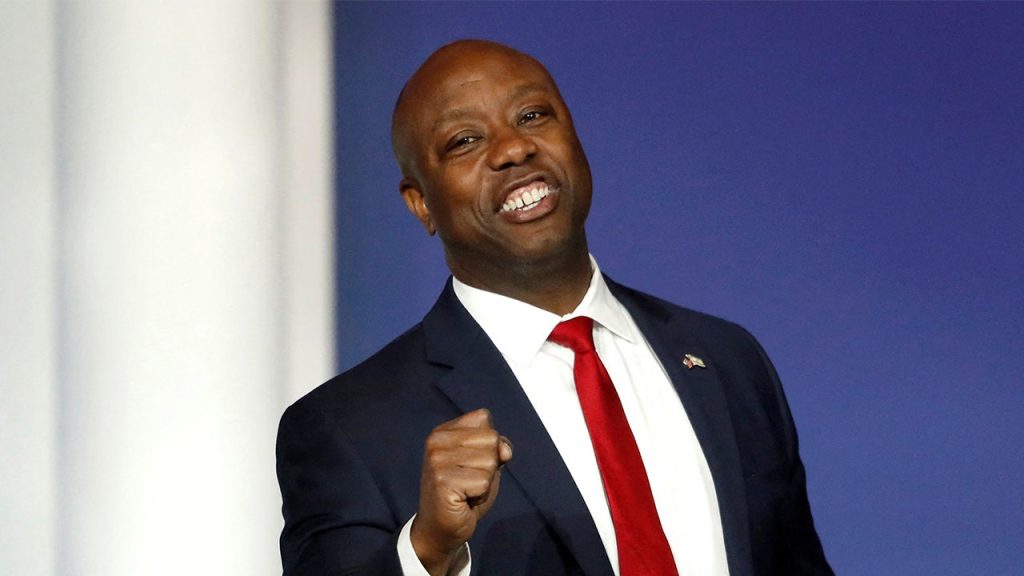Senator Tim Scott (R-SC), the newly elected chairman of the National Republican Senatorial Committee (NRSC), has unveiled his senior staff for the 2026 election cycle. This team, comprised of experienced political operatives with backgrounds tied to President-elect Donald Trump, former Vice President Mike Pence, and Scott himself, signals a strategic focus on expanding the Republican Senate majority and advancing Trump’s agenda. Scott emphasized the importance of a four-year period of implementing the Trump agenda, highlighting the need for a highly skilled team to secure and expand the Republican majority. This emphasis on Trump’s influence suggests the former president will continue to play a significant role in Republican politics and policy. The selection of this team marks the beginning of the NRSC’s campaign efforts for the 2026 midterm elections, a cycle likely to be highly competitive.
Leading the NRSC’s efforts will be Jennifer DeCasper, Scott’s long-time chief of staff, who will serve as executive director. Her extensive experience working alongside Scott positions her to effectively implement his vision for the committee. Stephen DeMaura, Pence’s 2024 presidential campaign manager, will join DeCasper as deputy executive director, bringing his considerable campaign experience to the NRSC. Current NRSC Chairman Steve Daines praised DeCasper’s strategic insight and commitment to conservative principles, underscoring the importance of her leadership in navigating the complex political landscape. The combined experience of DeCasper and DeMaura suggests a focus on both strategic planning and effective campaign execution.
Further strengthening the team, Cara Mason, a Trump alum, will oversee fundraising as finance director, ensuring the NRSC has the necessary resources to compete effectively. Nathan Brand will serve as Scott’s senior advisor, providing strategic counsel and support to the chairman. Brendan Jaspers, formerly of the Club for Growth, will take on the role of political director, bringing his expertise in campaign management to the committee. Joanna Rodriguez, currently the communications director for Senator Pete Ricketts (R-NE), will lead the NRSC’s communications efforts. Ricketts, who will serve as vice chair of the NRSC, expressed confidence in Rodriguez’s ability to craft winning conservative messages for both incumbent senators and challengers.
Rounding out the senior staff are Brennen Britton, director of external affairs, and Brittney Godoy, senior finance advisor, who has previously managed Scott’s fundraising efforts. Britton’s experience in Senate operations and Godoy’s fundraising expertise will further bolster the NRSC’s capabilities. This diverse team, with backgrounds spanning various aspects of political campaigning, aims to provide a comprehensive approach to securing Republican victories. Ricketts emphasized the importance of a seasoned team of conservative operatives to support President Trump’s agenda, suggesting a close alignment between the NRSC’s goals and the former president’s political priorities.
The 2026 Senate races are shaping up to be highly competitive, with several key seats up for grabs, including those currently held by Senators Jon Ossoff (D-GA), Thom Tillis (R-NC), and Susan Collins (R-ME). These races will be crucial battlegrounds in determining which party controls the Senate. The NRSC’s focus on supporting Trump’s agenda suggests a strategy of appealing to the Republican base and mobilizing voters who support the former president. The committee’s success in these races will depend on its ability to effectively navigate the political landscape and resonate with voters in key states.
On the Democratic side, Senator Kirsten Gillibrand (D-NY) is vying for the chair position of the Democratic Senatorial Campaign Committee (DSCC). She is emphasizing her ability to connect with voters in purple states, highlighting the importance of appealing to a broader electorate beyond the Democratic base. The 2026 midterms will likely be a closely contested election cycle, with both parties vying for control of the Senate. The outcome of these races will significantly impact the political landscape and the ability of either party to advance their legislative agenda. The competition between the NRSC and the DSCC will be a key factor in determining which party ultimately prevails.

